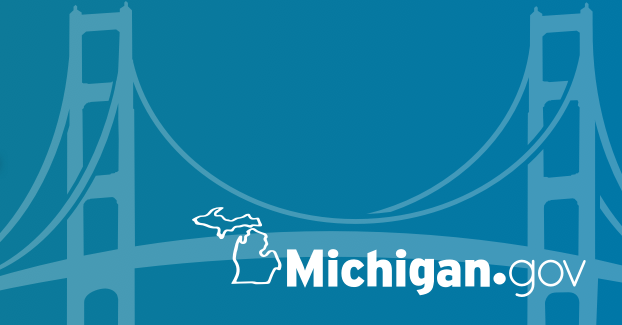
LANSING, Mich.— Tuesday, Governor Whitmer signed bipartisan legislation to power economic growth and development within Kent County by giving local government the power to raise revenue for community improvement projects. The revenue, if approved by local voters, will support a new riverfront amphitheater and soccer stadium in downtown Grand Rapids.
“Today’s bipartisan legislation will ensure Kent County and the City of Grand Rapids can continue to grow and thrive,” said Governor Whitmer. “Grand Rapids is one of the fastest-growing cities in Michigan and with more tools in their toolkit, they can finish two significant projects—a stadium and an amphitheater—to make their community a better place to live, work, and play. We must collaborate on commonsense, bipartisan economic development legislation that supports local small businesses and shows young people that Michigan is the best place for them to build their lives. Let’s keep building housing, revitalizing downtowns, and securing projects that improve quality of life.”
"I'm happy voters in Grand Rapids will have the opportunity to make a choice about how to invest in the future of their community,” said Senate Majority Leader Winnie Brinks (D-Grand Rapids). “It's exciting to consider the economic growth that is made possible when a big idea has a path to become a reality – in our case, a large sports attraction or an amphitheater. This legislation provides a new tool that local communities can use when they have a big dream – one that our local city and county leaders put a lot of hope into. I'm thrilled that we were able to get it done."
"One of my top priorities in the legislature has been to support our local communities. House Bill 5048 helps do just that by helping communities across the state plan for the future and bring forward transformational infrastructure and placemaking projects, especially here at home in Kent County," said state Representative John Fitzgerald (D-Wyoming). "This is a significant milestone — a win for our communities, residents and our goal of making Kent County a leading destination for travel, entertainment, and business in the Midwest."
"Our convention center and downtown arena demonstrated that these projects provide a significant return on investment and add to the vibrancy of our entire region,” said Grand Rapids Mayor Rosalynn Bliss. “This enabling legislation provides another great opportunity to continue to support catalytic projects, that will have an impact for generations to come."
“Public-private partnerships have long been key to projects that have transformed our downtown, increased visitorship and enriched the quality of life in our community at large,” said Kara Wood, Executive Director of Grand Action 2. “We look forward to working closely with our partners at the City of Grand Rapids and Kent County to explore what this legislation makes possible.”
“West Michigan is a vibrant, growing region because of the success of public-private partnerships and a collaborative spirit,” said Joshua Lunger, Vice President of Government Affairs for the Grand Rapids Chamber. “This legislation provides an opportunity to invest in transformational projects and catalyze additional private investment in housing and public spaces to attract and retain talent while raising the quality of life for all residents.”
“Experience Grand Rapids has strongly and consistently supported development of the transformational projects identified in our 2016 destination asset study and refined in subsequent and related studies, including the riverfront amphitheater, a professional soccer stadium and a world-class aquarium,” said Doug Small, President & CEO, Experience Grand Rapids. “These assets will be keys to elevating Grand Rapids and Kent County as a top-tier visitor destination. Once complete, these projects will have a profoundly positive and generational impact on the quality of life and economy in our region.”
Growing Grand Rapids
House Bill 5048, sponsored by state Representative John Fitzgerald (D-Wyoming), authorizes local units of government within Kent County, including the City of Grand Rapids, to increase the amount of tax revenue raised by hotels and motels as long as the voters in that local unit of government approve the increase. The revenue will go towards the new riverfront amphitheater and a new soccer stadium, both in the heart of the city. These projects will improve quality of life, drive tens of millions of dollars in revenue for local small businesses, and continue growing the city’s economy.
Additional Legislation Signed into Law
Governor Whitmer signed two other bipartisan bills.
House Bill 4012, sponsored by state Representative Bradley Slagh (R-Zeeland) amends the process of how modified speed limits are determined.
“I am happy to finally have this commonsense bill become law,” said state Representative Bradley Slagh (R-Zeeland). “Enacting this bill will help to correct less than perfect language in the current law related to how speed limits are set, provide ways to reduce costs for our local road agencies, and institute clear guidelines to help keep all roadway users safer.”
House Bill 4183, sponsored by state Representative John Roth (R-Interlochen), extends the exhibition period that allows historic vehicles to be driven on the road with historic license plates to three months, up from one.
“Michigan was built on automobiles. It only makes sense that we should honor that history by giving folks more time to drive their historic vehicles,” said state Representative John Roth (R-Interlochen). “Many cars and trucks with historic plates were built here in Michigan. People put a lot of time and money into purchasing and maintaining these automobiles. Anyone with that much commitment to historic vehicles should have all summer to show them off.”
###














